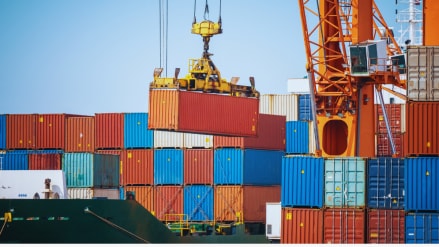The blow to India’s exports to the US from heightened tariffs has been softened by the growth in other markets helping to keep exports growing in September too, according to a report.
Reflecting the impact of the additional US tariffs, merchandise exports to the US grew -11.9% on-year to $5.5 billion in September after growing by 7.1% in August. Had it not been for the frontloading of shipments, the decline would have been steeper, a report by Crisil said.
“In contrast, exports to non-US markets grew 10.9% on-year, outpacing the 6.6% growth in August. This suggests that while the tariffs have dampened US-bound exports, India’s exports to other countries are bearing fruit,” the report added.
Anticipating the impact that the 50% tariffs by the US – the biggest market – will have on overall exports the government had already started working on plans to deal with the situation.
As part of its export diversification measures in the wake of tariff shocks emanating from the US, the government is working to expand the current list of 20 “focus markets” by adding 30 more countries, officials said Monday.
The market expansion efforts that started earlier to de-risk exports will be expanded. Top 10 countries accounted for 50% of total exports when the focus country list was expanded to 20 countries. The addition of 30 countries will take the focus country initiative to cover 90% of India’s exports.
“India’s merchandise exports rose 6.7% on-year to reach $36.4 billion in September, demonstrating resilience despite global economic headwinds and the introduction of 50% additional US tariffs from August 27,” the report said.
The World Trade Organization expects global merchandise trade volumes to grow 2.4% on-year in 2025 compared with 2.8% growth last year. Despite these headwinds, India’s current account deficit (CAD) is expected to remain manageable, supported by
strong services trade, remittances and softer crude oil prices. We forecast CAD to be at 1% of gross domestic product (GDP) this fiscal, compared with 0.6% last fiscal, Crisil said.
